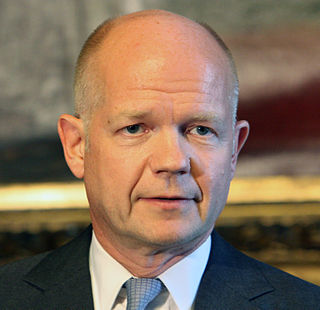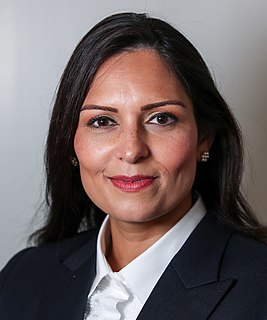
Kenneth Harry Clarke, often known as Ken Clarke, is a British Conservative politician who has been the Member of Parliament for Rushcliffe since 1970. He is currently the Father of the House.
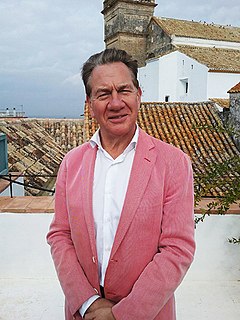
Michael Denzil Xavier Portillo is a British journalist, broadcaster, and former Member of Parliament and Cabinet Minister of the Conservative Party. He was first elected to the House of Commons in a by-election in 1984. A strong admirer of Margaret Thatcher, and a Eurosceptic, Portillo served as a junior minister under both Thatcher and John Major, before entering the cabinet in 1992. A "darling of the right", he was seen as a likely challenger to Major during the 1995 Conservative leadership election, but stayed loyal. As Defence Secretary, he pressed for a purist Thatcherite course of "clear blue water", separating the policies of the Conservatives from those of the Labour Party.

The Pro-Euro Conservative Party was a British political party announced by John Stevens and Brendan Donnelly in February 1999, formed to contest the 1999 European Parliament Elections. The founders were Members of the European Parliament who had resigned from the UK Conservative Party in protest at its anti-euro stance. Their reported aim was to replace Eurosceptic William Hague as Conservative leader with Europhile Kenneth Clarke. Stevens later said that they had intended to push Ken Clarke, Michael Heseltine, Chris Patten and other pro-Europeans in the Conservative Party into "an SDP-style breakaway, in combination with the Liberal Democrats". The Pro-Euro Conservative Party disbanded in 2001.

Crispin Jeremy Rupert Blunt is a British Conservative Party politician. He is the Member of Parliament (MP) for the Reigate constituency in Surrey, and from May 2010 to September 2012 he was the Parliamentary Under-Secretary of State for Prisons and Youth Justice within the Ministry of Justice.

Michael Andrew Foster Jude Kerr, 13th Marquess of Lothian,, formerly styled as Earl of Ancram and commonly known as Michael Ancram until he inherited the marquessate in 2004, is a Scottish Conservative Party politician. He was formerly a Member of Parliament (MP) and a member of the Shadow Cabinet. Since 2010 a member of the House of Lords, he is the only marquess in the House of Lords. Lord Lothian is hereditary Chief of the Scottish Clan Kerr.

Stephen Twigg is a British Labour and Co-operative Party politician who has been Member of Parliament (MP) for Liverpool West Derby since 2010. He previously served as the Member of Parliament for Enfield Southgate from 1997 to 2005.

Sir Graham Stuart Brady is a British Conservative Party politician and the Member of Parliament (MP) for Altrincham and Sale West since 1997. He served as a Shadow Minister for Europe under four Conservative leaders before resigning in 2007 in protest at David Cameron's opposition to grammar schools. He succeeded Michael Spicer as Chairman of the 1922 Committee on 26 May 2010. On 1 December 2010, Brady was voted "Backbencher of the Year" by The Spectator at its annual parliamentary awards. He resigned as 1922 Committee chairman on 24 May 2019 in order to explore launching a leadership bid for Conservative Party leadership in the weeks that followed. He opted not to run for Leader.
Andrew Guy Tyrie, Baron Tyrie, PC is a British Conservative Party politician and chairman of the Competition and Markets Authority. He served as Member of Parliament (MP) for Chichester from 1997 to 2017.

The 2005 United Kingdom general election was held on Thursday 5 May 2005, to elect 646 members to the House of Commons. The Labour Party led by Tony Blair won its third consecutive victory, with Blair becoming the only Labour leader beside Harold Wilson to form three majority governments. However, its majority now stood at 66 seats compared to the 160-seat majority it had previously held. As of 2019, it remains the last general election victory for the Labour Party.
In the parliamentary politics of the United Kingdom and Canada, one member, one vote (OMOV) is a method of selecting party leaders by a direct vote of the members of a political party. Traditionally, these objectives have been accomplished either by a party convention, a vote of members of parliament, or some form of electoral college. OMOV backers claim that OMOV enhances the practice of democracy, because ordinary citizens will be able to participate. Detractors counter that allowing those unversed in the issues to help make decisions makes for bad governance.

The 2005 Conservative Party leadership election was called by party leader Michael Howard on 6 May 2005, when he announced that he would be stepping down as Leader of the Conservative Party in the near future. However, he stated that he would not depart until a review of the rules for the leadership election had been conducted, given the high level of dissatisfaction with the current system. Ultimately, no changes were made and the election proceeded with the existing rules, which were introduced in 1998.
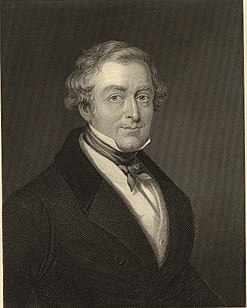
The Conservative Party is the oldest political party in the United Kingdom and arguably the world. The current party was first organised in the 1830s and the name "Conservative" was officially adopted, but the party is still often referred to as the Tory party. The Tories had been a coalition that more often than not formed the government from 1760 until the Reform Act 1832. Modernising reformers said the traditionalistic party of "Throne, Altar and Cottage" was obsolete, but in the face of an expanding electorate 1830s–1860s it held its strength among royalists, devout Anglicans and landlords and their tenants.

The 1990 Conservative Party leadership election in the United Kingdom took place on 20 November 1990 following the decision of Michael Heseltine, former Defence and Environment Secretary, to challenge Margaret Thatcher, the incumbent Prime Minister, for leadership of the Conservative Party.

The 1995 Conservative Party leadership election was initiated when the incumbent leader and Prime Minister, John Major, resigned as leader on 22 June 1995, in order to face his critics within the party. On 4 July 1995, he was re-elected, beating the only other candidate, the former Secretary of State for Wales, John Redwood.

The 2003 Conservative Party leadership election was caused by the enforced resignation of incumbent leader Iain Duncan Smith after the loss of a confidence vote among his parliamentary party. The causes of Duncan Smith's fall are often cited as his lack of charisma and impact with the public, the uninspired direction of the party under his leadership, and his previous failure to achieve more than a third of support among Members of Parliament in the 2001 leadership contest. In the event, the Conservative Party coalesced around Michael Howard as replacement leader and there was not a contest to replace Duncan Smith.
Sir George Arthur Gardiner was a British Conservative Party politician and journalist. Two months before the 1997 general election he defected to the Referendum Party, becoming the only MP it ever had. The party dissolved later that year.
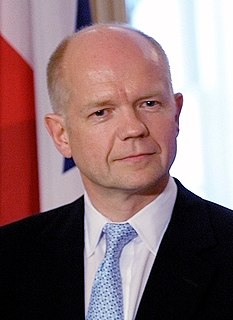
The 1997 Conservative Party leadership election was triggered in the British Conservative Party when John Major resigned on 2 May 1997, following his party's landslide defeat at the 1997 general election, which ended 18 years of Conservative Government of the United Kingdom. Major had been Conservative leader and Prime Minister since November 1990.

The 2011 Scottish Labour Party leadership election was an internal party election to choose a new leader of the Scottish Labour Party. The election followed the announcement by Iain Gray that he would stand down as leader in the autumn of 2011 following the party's heavy defeat to the Scottish National Party in May's Scottish Parliament general election. Gray won the previous contest in September 2008.

The 2019 Conservative Party leadership election was triggered when Theresa May announced on 24 May 2019 that she would resign as leader of the Conservative Party on 7 June, and as Prime Minister once a successor had been elected. Nominations were open on 10 June, and 10 candidates were nominated. The first ballot of MPs took place on 13 June, with exhaustive ballots of MPs also taking place on 18, 19 and 20 June, reducing the candidates to two. The general membership of the party elected the leader by postal ballot with the result announced on 23 July, with Boris Johnson being elected as leader with almost twice as many votes as his opponent Jeremy Hunt.


